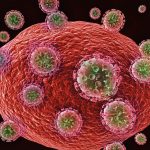The following post comes from Terence Yen, a 4E at Scalia Law and a Research Assistant at CPIP.
 By Terence Yen
By Terence Yen
In his new paper, Patent Eligibility and Investment, Professor David Taylor of the SMU Dedman School of Law explores whether the Supreme Court’s recent patent eligibility cases have changed the behavior of venture capital and private equity investment firms. Read more
 By Colin Kreutzer
By Colin Kreutzer By
By  Last week, a group of CPIP scholars—Chris Holman, David Lund, Adam Mossoff, and Kristen Osenga—filed an
Last week, a group of CPIP scholars—Chris Holman, David Lund, Adam Mossoff, and Kristen Osenga—filed an  Earlier this month, CPIP Senior Scholar Adam Mossoff penned an
Earlier this month, CPIP Senior Scholar Adam Mossoff penned an  Following the Supreme Court’s four decisions on patent eligibility for inventions under
Following the Supreme Court’s four decisions on patent eligibility for inventions under  Last year I christened the post-Alice impact on patents #Alicestorm, riffing on the hashtag #hellastorm used to refer to the
Last year I christened the post-Alice impact on patents #Alicestorm, riffing on the hashtag #hellastorm used to refer to the